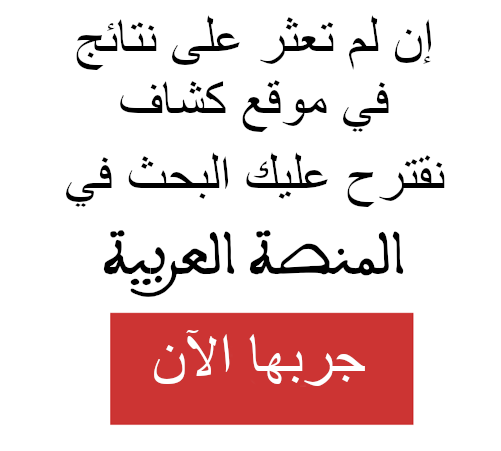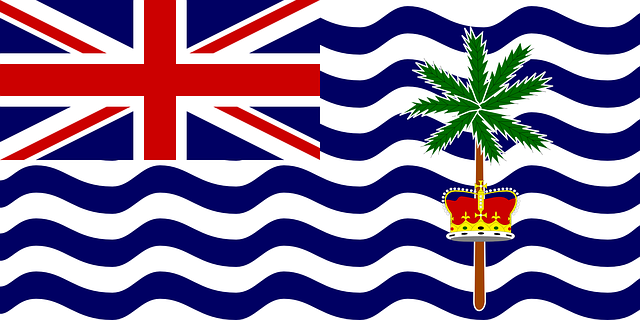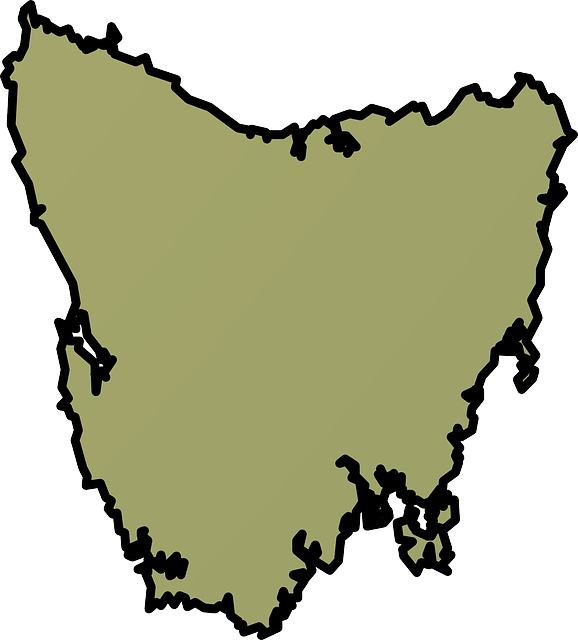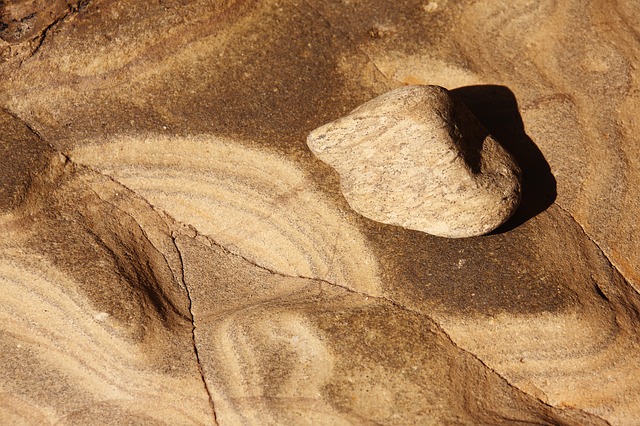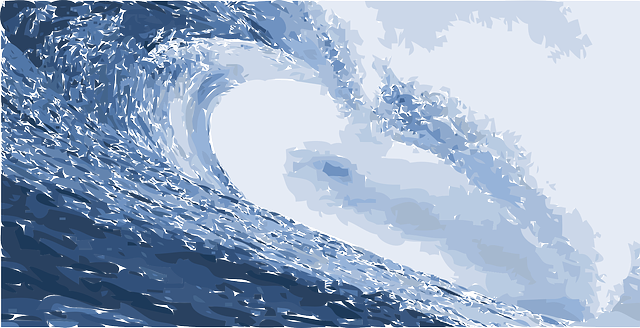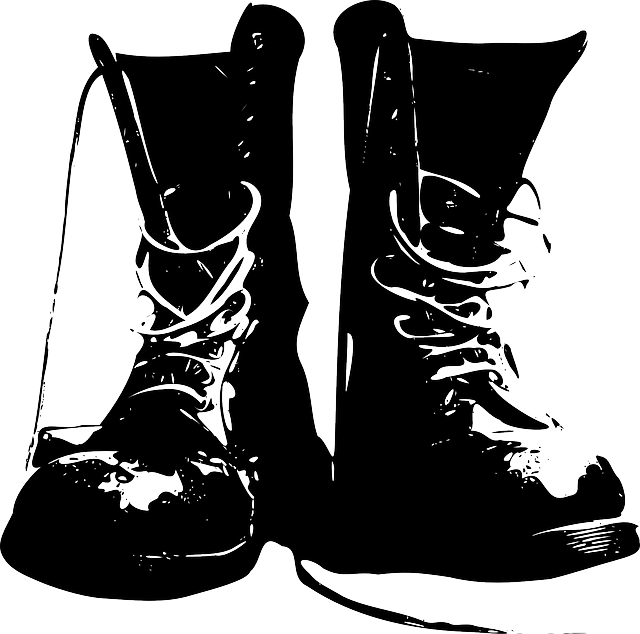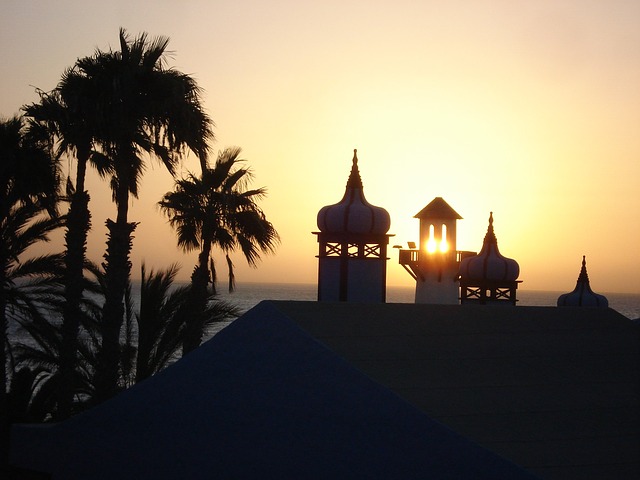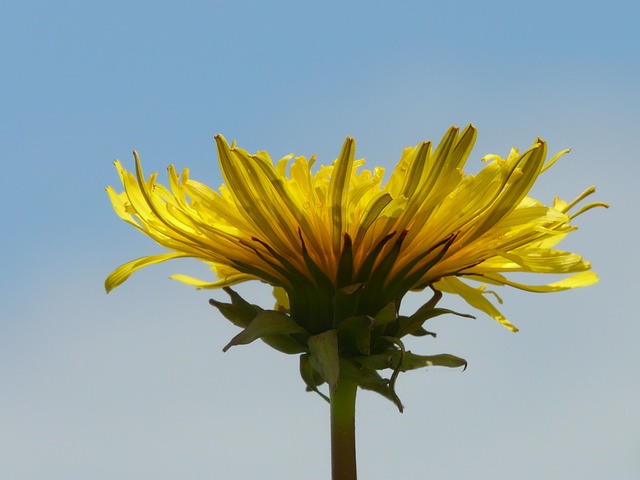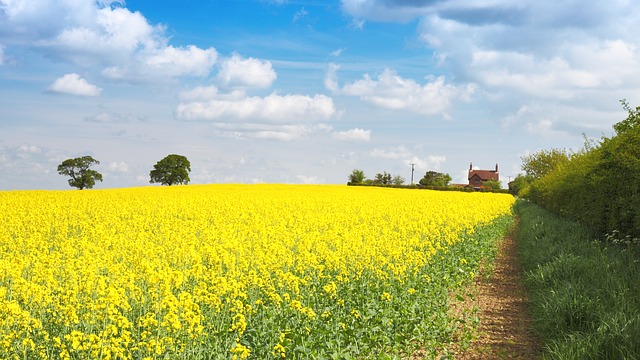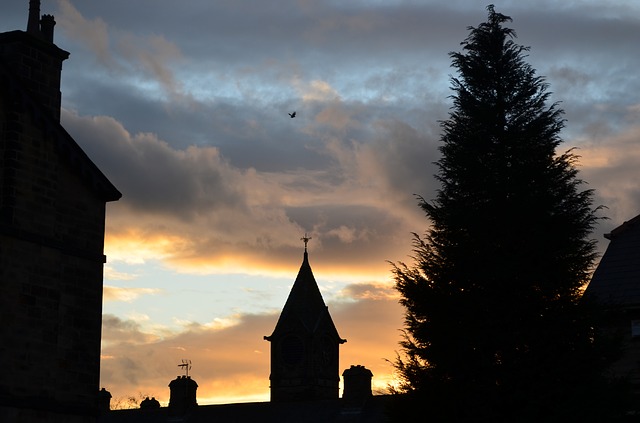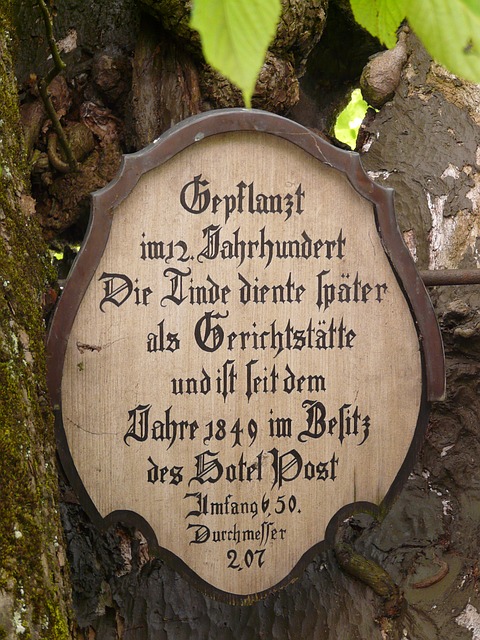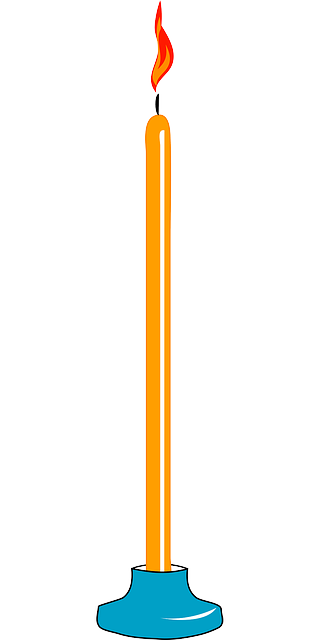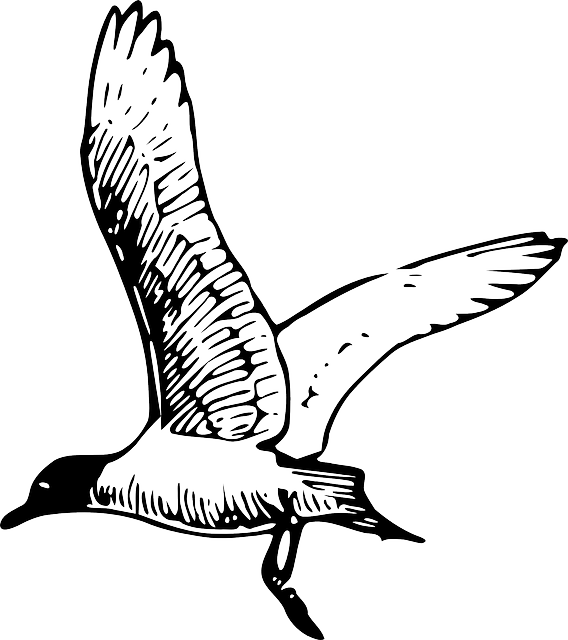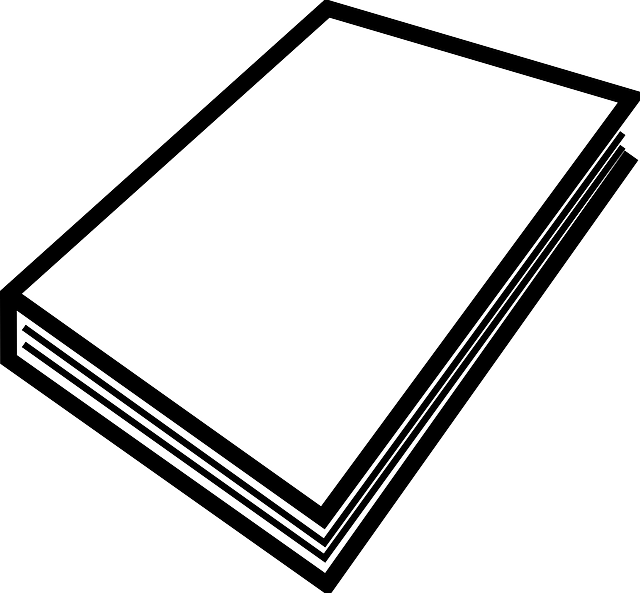قائمة مفصلة بالموسيقيين في عصر النهضة
المدرسة البورجاندية
| Name | Born | Died | Notes |
|---|---|---|---|
|
Johannes Tapissier (Jean de Noyers) |
c. 1370 | before 1410 | |
| Nicolas Grenon | c. 1375 | 1456 | |
| Pierre Fontaine | c. 1380 | c. 1450 | |
| Jacobus Vide | fl. 1405? | after 1433 | |
|
Guillaume Legrant (Lemarcherier) |
fl. 1405 | after 1449 | |
|
John Dunstaple (or Dunstable) |
c. 1390 | 1453 | Native to England. |
|
Guillaume Dufay (Guillaume Du Fay) |
1397 | 1474 | |
| Johannes Brassart | c. 1400/1405 | 1455 | |
| Johannes Legrant | fl. c. 1420 | after 1440 | |
|
Gilles Binchois (Gilles de Bins) |
c. 1400 | 1460 | |
| Hugo de Lantins | fl. c. 1420 | after 1430 | |
| Arnold de Lantins | fl. 1423 | 1431/1432 | |
| Reginaldus Libert | fl. c. 1425 | after 1435 | |
| Jean Cousin | before 1425 | after 1475 | |
| Gilles Joye | 1424/1425 | 1483 | |
| Guillaume le Rouge | fl. 1450 | after 1465 | |
| Robert Morton | c. 1430 | 1479 | |
| Antoine Busnois | c. 1430 | 1492 | |
| Adrien Basin | fl. 1457 | after 1498 | |
| Hayne van Ghizeghem | c. 1445 | after 1476 |
الإنجليزية
Due in part to its isolation from mainland Europe, the English Renaissance began later than most]].
1370–1450
| Name | Born | Died | Notes |
|---|---|---|---|
|
Forest probably John Forest |
1365/70 | 1446 | Dean of Wells. One credo setting and six antiphons by him survive in the second layer of the Old Hall Manuscript; two anonymous settings may also be by him. |
| Pycard | fl. c. 1390 | after c. 1410 | Has works preserved in the first layer of the Old Hall Manuscript and elsewhere. His identity is unclear; probably English, but possibly from France. |
| Leonel Power | c. 1370 | 1445 | |
|
J. Cooke probably John Cooke |
c. 1385 | 1442? | Nine pieces attributed to him in the Old Hall Manuscript. |
|
Damett almost certainly Thomas Damett |
c. 1389 | 1436/7 | A significant contributor to the second layer of the Old Hall Manuscript where nine of his works are preserved. |
| Roy Henry | fl. 1410 | after 1410 | Very likely to be Henry V of England (1387–1422). |
|
Byttering possibly Thomas Byttering |
fl. c. 1410 | after 1420 | |
|
N. Sturgeon almost certainly Nicholas Sturgeon |
fl. 1413 | 1454 | |
| Richard Smert | c. 1400 | 1478/9 | Has eight carols for 2 or ثلاثة voices attributed entirely to him in the Ritson Manuscript; a further four are jointly credited to Smert and John Trouluffe. |
| John Plummer | c. 1410 | c. 1483 | |
| Henry Abyngdon | c. 1418 | 1497 | |
|
John Trouluffe John Treloff |
fl. 1448 | c. 1473 | Represented in the Ritson Manuscript, by three settings of Nesciens mater for three voices and by four carols. Richard Smert is jointly credited. |
|
Richard Mowere possibly the same as Richard Mawere |
fl. 1450 | after 1470 | Has two 3-voice settings in the Ritson Manuscript. |
| Walter Frye | fl. c. 1450 | after 1475 | |
| William Horwood | c. 1430 | 1484 | Some of his music is collected in the Eton Choirbook. |
|
John Hothby Johannes Ottobi |
c. 1430 | 1487 | English theorist and composer mainly active in Italy. |
|
William Hawte William Haute |
c. 1430 | 1497 | |
| Richard Hygons | c. 1435 | c. 1509 | |
| Gilbert Banester | c. 1445 | 1487 | |
|
John Tuder John Tudor |
fl. c. 1470 | after 1470 | A number of his works are found in the Pepys Manuscript; the most extended piece, a setting of Lamentations, is incomplete (only one voice part is preserved). |
| Walter Lambe | c. 1450 | after 1504 | Major contributor to the Eton Choirbook. |
|
Henry Prentyce Harry Prentes |
1450s | 1514 | Has an extant 5-voice Magnificat setting in the Caius Choirbook. |
| Hugh Kellyk | late 15th century | 16th century? | has two surviving pieces, a five-part Magnificat and a seven-part Gaude flore virginali, in the Eton Choirbook. |
|
Edmund Turges possibly the same as Edmund Sturges |
fl. 1507 | after 1508 | Has a number of works preserved in the Eton Choirbook; at least three Magnificat settings and two masses have been lost. |
1451–1500
- John Nesbett (fl. 1475–1488), has two surviving works
- Robert Wilkinson (c. 1450/1451 – 1515 or later), or Wylkynson
- John Browne (fl. c. 1490) Likely born 1453. Major contributor to the Eton Choirbook
- Robert Hacomplaynt (c. 1456–1528), also written as Hacomplayne, Hacomblene. He has a single surviving work, a setting of Salve regina, in the Eton Choirbook. A work known as Haycomplayne's Gaude, dated 1529, has been lost.
- John Cornysh (late 15th century – early 16th century) Probably a relative of William Cornysh
- William Cornysh the elder (fl. from 1479; died c. 1502), may be the composer of a number of sacred works previously credited to William Cornysh the younger
- Thomas Pack (fl. 1489–1499), also written as Packe or Pakke, has five extant works which are preserved in the Ritson Manuscript
- William Corbronde (fl. 1480–1500), represented in the Pepys manuscript
- Robert Fayrfax (1464–1521) Also spelt Fairfax, Fairfaux, Feyrefax
- Richard Davy (c. 1465 – c. 1507) Major contributor to the Eton Choirbook
- William Cornysh the younger (c. 1468–1523) Probably the son of William Cornysh the elder
- Henry Petyr (c. 1470–after 1516), also written Petre or Peter, represented by one surviving mass setting (the is Kyrie missing)
- Richard Sampson (c. 1470–1554)
- Avery Burton (c. 1474–1542 to 1547) Also spelt Avere, Burnet
- John Norman (fl. 1509–1545). Composed a 5-part mass Resurrexit Dominus, found in the Forrest-Heyther partbooks, on an Easter plainsong; and a 3-part Miserere Mihi in the Ritson manuscript that is much more elaborate, somewhat resembling John Taverner's responds
- William Rasar (born c. 1491; fl. 1499–c. 1514), or William Rasor. His output includes English and Latin church music. Composed a mass found in the Forrest-Heyther partbooks
- Thomas Ashewell (c. 1478–after 1513), name also written Ashwelle, Asshwell
- John Strabridge (fl. before 1548), represented by a single work, a Dum transisset, in the Christchurch partbooks
- Christopher Hoskins (fl. before 1548), represented by a single work, a Speciosa facta es, in the Gyffard partbooks
- William, Monk of Stratford Stratford has a single work, a four-part Magnificat, in the Eton Choirbook.
- Hugh Aston (c. 1485–1558) Also spelt Ashton, Assheton
- Richard Bramston (? 1485–1554) Represented in the Peterhouse and Gyffard partbooks
- Nicholas Ludford (c. 1485–1557)
- John Mason (c. 1480–1548), has four surviving works, featured in the Peterhouse partbooks
- Richard Pygott (c. 1485–1549), or Pigott. There are two works by Pygott in the Peterhouse partbooks
- Edmund Sturton (fl. late 15th – early 16th century) Presumably identical with the Sturton who composed the six-part Ave Maria ancilla Trinitatis in the Lambeth Choirbook, he contributed a Gaude virgo mater Christi to the Eton Choirbook, the six voices of which cover a fifteen-note range
- John Redford (c. 1486–1547) One of the main contributors to The Mulliner Book
- Nicholas Huchyn (fl. late 15th – early 16th century) A single work, a setting of Salve regina in the Eton Choirbook
- Fawkyner (fl. c. 1480), featured in the Eton Choirbook. His identity is uncertain, but he may have been Richard Fawkyner (fl. 1482–1484).
- William Pasche (fl. late 15th – early 16th century) Also spelt Pashe. Represented by a Christus resurgens Mass, written on a Sarum chant, two Magnificats, and a motet, Sancta Maria
- Robert Cowper (c. 1474–1535/1540), also written as Cooper or Coupar. He is represented by a work in the Gyffard partbooks and manuscript sources.
- Thomas Appleby (c. 1488–1563)
- John Taverner (c. 1490–1545)
- William Whytbroke (fl. 1520–1530) Surviving music includes a four-part Mass apon ye Square, in the Gyffard partbooks
- Henry VIII of England (1491–1547)
- John Dark (c. 1495–c. 1569?), or John Darke. Just one work survives: a 5-part Magnificat in the Peterhouse partbooks
- Robert Jones (fl. 1520 to 1538) Contributed a Mass and Magnificat to the Peterhouse partbooks, and songs to Wynkyn de Worde's songbook of 1530
- Thomas Preston (ت. c. 1563) Composed 12 Offertory settings for keyboard, including the popular Felix namque, and an alternatim organ Mass for Easter, containing the only known sequence setting of the time. His keyboard writing is extremely virtuosic for the period.
1501–1550
- Hyett (fl. before 1548) Represented by a single work in the Gyffard partbooks
- John Ensdale (fl. before 1548) Represented by a single work in the Gyffard partbooks
- John Hake (fl. before 1548) Represented by a single work in the Gyffard partbooks
- Walter Erly (16th century) Has a single work in the Peterhouse partbooks
- Arthur Chamberlain (early 16th century) Also spelt Chamberlayne. Has a single work in the Peterhouse partbooks
- John Ambrose (fl. 1520 to 1545) Few pieces survive
- William Shelby (? – 1570) Also spelt Shelbye, Selby, Selbie, Selbye. Two liturgical keyboard pieces, a Miserere and Felix namque, survive in The Mulliner Book
- Robert Okeland (fl. before 1548) Also spelt Hockland, Ockland. Represented by a single work in the Gyffard partbooks
- Thomas Tallis (c. 1505–1585)
- Christopher Tye (c. 1505 – ? 1572)
- John Wood (fl. 1530) He is represented by a single work, an Exsurge Domine et dissipentur inimici, in the Christchurch partbooks
- John Merbecke (also Marbeck) (c. 1510 – c. 1585) Produced the first musical setting for the English liturgy, publishing The Booke of Common Praier Noted 1549. Surviving works include a Missa Per arma iustitie Almost burnt as a heretic in 1543.
- Osbert Parsley (1511–1585) Also spelt Parsely Wrote a set of Lamentations for Holy Week
- E. Strowger (fl. early 16th century) Only a single piece for keyboard, a Miserere in a المتحف البريطاني MS, can be attributed to him
- Thomas Knyght (fl. 1530 to 1535) Presumably also spelt Knight. Has a single work in the Peterhouse partbooks, and three works in the Gyffard partbooks
- Philip Alcocke (fl. before 1548) Represented by a single work in the Gyffard partbooks
- John Sheppard (c. 1515–1559)
- John Thorne (died 1573) Exsultabunt sancti in a British Museum MS
- Kyrton (fl. 1540 to 1550) Miserere for keyboard in a المتحف البريطاني MS
- John Black (c. 1520–1587)
- Thomas Caustun (c. 1520/1525–1569), or Causton
- John Blitheman (c. 1525–1591)
- Richard Wynslate (died 1572) Also spelt Wynslade. His keyboard piece Lucem tuamis in a British Museum MS
- Henry Stenings (fl. before 1548 – after 1600) Also spelt Stonninge, Stoninge, Stoninges, Stoning, Stonings. Surviving consort works on MS are three five-part works - a Miserere, a Browning and an In Nomine - and a simpler, four-part In Nomine. A four-part Latin Magnificat is found in the Gyffard partbooks
- Richard Allwood (fl. c. 1550–1570) Also spelt Alwood
- Richard Edwardes (1525–1566) Also spelt Edwards
- Hugh Sturmys (16th century) Has a single work in the Peterhouse partbooks
- Thomas Wright (16th century) Also spelt Wrighte. He is represented by a single work in the Gyffard partbooks, a Nesciens mater
- William Mundy (c. 1528 – before 1591) Father of John Mundy His output includes fine examples of both the large-scale Latin votive antiphon and the short English anthem, as well as Masses and Latin psalm settings; his style is vigorous and eloquent. He is represented in The Mulliner Book and in the Gyffard partbooks.
- Robert Parsons (c. 1535–1572) Latin music includes antiphons, Credo quod redemptor, Domine quis habitabit, Magnificat and Jam Christus astra. Also three responds from the Office of the Dead, songs (including Pandolpho), In nomine settings for ensemble, and a galliard.
- Thomas Whythorne (1528–1595)
- John Heath (16th century) Contributed a Morning and Communion Service to Day's Certaine Notes, of 1560. Probably the composer of a Christe qui lux for keyboard in MS, ascribed to 'Heath'
- Clement Woodcock (1540–1590) Also spelt Woodcoke, Woodecock. His Browning my dear is one of several pieces of the period based on a popular tune, also known as The leaves be green
- John Cuk (16th century) An extant mass on Venit dilectus meus in the York MS
- Robert White (1538–1574) Also spelt Whyte
- William Byrd (c. 1540–1623)
- Richard Hunt (16th century) Has two works in the Peterhouse partbooks
- Anthony Holborne (c. 1545–1602) Also known as Olborner
- John Johnson (c. 1545–1594)
- Thomas Woodson (ت. ? 1605) Forty Wayes of 2 pts. in one is found in a British Museum MS, canonic settings of Miserere
- Thomas Warrock (fl. 1580–1590) Also spelt Warrocke, Warwick. Two pieces in the Fitzwilliam Virginal Book, Nos. 97-8
- John Baldwin (before 1560–1615)
- John Cosyn (died 1609) Published Musicke of six, and five partes in 1585
- Edward Martyn (16th century) Has a single work in the Peterhouse partbooks
- John Northbrooke (16th century) Has a single work in the Peterhouse partbooks
- Picforth (fl. c. 1580) An In nomine survives in MS, unusual in that each instrumental part consists of notes of only one time-value throughout, the values differing in each of the five parts
- Poynt (fl. c. 1580) Works survive in manuscript
- Thomas Oldfield(?) His Praeludium is No. 49 in the Fitzwilliam Virginal Book
- Jehan Oystermayre (?) Almost certainly German origin. Represented in the Fitzwilliam Virginal Book
1551–1570
- John Marchant (? – 1611) There survive a Pavan in a Fitzwilliam Museum, Cambridge MS, an Allemanda in the Fitzwilliam Virginal Book, No. 187; The Marchants Dream in a MS in the British Museum, and a Pavan and Galliard in another المتحف البريطاني MS.
- Richard Martin (fl. c. 1610) His only surviving song Change they mind since she doth change was included in Robert Dowland's A Musicall Banquet of 1610
- Thomas Fardyng (16th century) Three rounds in a المتحف البريطاني MS (MS 31922)
- Edward Collard (ت. c. 1600?)
- Edmund Hooper (c. 1553–1621) Also spelt Hoop. He contributed to Michael East's psalter and William Leighton's Teares, and wrote some intensely expressive anthems. He has two keyboard pieces in the Fitzwilliam Virginal Book
- Elway Bevin (1554–1638) Possibly Welsh
- William Inglot (1554–1621) Also spelt Inglott. Two keyboard pieces in the Fitzwilliam Virginal Book; there is also an untitled keyboard piece by 'Englitt' in a MS in the British Museum
- John Mundy (c. 1555–1630) Son of William Mundy. Published a volume of Songs and Psalms in 1594, contributed to the Triumphs of Oriana, composed English and Latin sacred music, and is represented with five pieces in the Fitzwilliam Virginal Book. His Goe from my window variations are a particularly fine example of the genre
- Thomas Morley (1557–1603)
- Nathaniel Giles (c. 1558–1634) Also spelt Gyles
- Matthew Jeffries (c. 1558 – c. 1615)
- Ferdinando Richardson (? 1558–1618) Also known as Sir Ferdinando Heybourne. There survives a keyboard Pavan and Galliard, each with variation, in the Fitzwilliam Virginal Book
- Richard Carlton (c. 1558 – ? 1638)
- William Brade (1560–1630) Active in Denmark and Germany
- William Cobbold (1560–1639) A single piece by him exists in Ravenscroft's 1621 collection.
- James Harding (c. 1560–1626) Also spelt Jeames Harden. Two keyboard fantasias, possibly arrangements, in a British Museum MS; a setting by William Byrd of a Gagliarda in the Fitzwilliam Virginal Book. Galiard by 'Mr. James' in Berlin State Library
- Peter Philips (1560–1628) Exiled to Flanders
- Thomas Robinson (c. 1560 – after 1609)
- Robert Hales (fl. 1583–1616) His only surviving song O Eyes, leave off your weeping was included in Robert Dowland's A Musicall Banquet of 1610.
- John Bull (1562–1628) Exiled to the Netherlands
- John Dowland (1563–1626)
- Giles Farnaby (c. 1563–1640)
- John Milton (c. 1563–1647) Father of the poet John Milton. Composed madrigals, one of which was printed in The Triumphs of Oriana, as well as anthems, Psalm settings, a motet, and some consort music including a 6-part In nomine
- John Danyel (1564 – after 1625) Also spelt Danyell. Brother of the poet Samuel Daniel (spellings of the names of the two brothers differ).
- Edward Johnson (fl. 1592/4) Contributed to Michael East's psalter and The Triumphs of Oriana and more
- Mallory (fl. c. 1580) Works survive in MS
- Michael Cavendish (c. 1565–1628)
- John Farmer (c. 1565–1605)
- George Kirbye (c. 1565–1634)
- William Leighton (c. 1565–1622)
- Leonard Woodson (c. 1565–1641), wrote verse anthems (nine are published in John Barnard’s First Book of Selected Church Musick, 1641). Other surviving pieces include instrumental consort works (four In Nomines a 5) and Mall Sims.
- Thomas Campion (1567–1620) Also spelt Campian. The only English composer to experiment with musique mesurée and the first to imitate the Florentine monodists
- John Hilton (died 1608) Probably father of John Hilton 'the younger' (1599–1657)
- Edward Gibbons (1568 – c. 1650) Brother of Orlando Gibbons
- Richard Gibbs (1568 – c. 1650) Also known as R. Gibbs. 'Allmaine' and 'Corant' in a Christ Church, Oxford MS
- Philip Rosseter (c. 1568–1623)
- Tobias Hume (c. 1569–1645) Responsible for the earliest known use of col legno in Western music
- Nicholas Strogers (fl. 1560–1575) Also spelt Strowger, Strowgers. Three (probably four) keyboard pieces in a Christ Church, Oxford, manuscript, and a Fantasia in the Fitzwilliam Virginal Book (No. 89); an In nomine exists in a Bodleian manuscript
- Edward Blancks (fl. c. 1590–1620) Also spelt Blanke, Blanks, Blanckes
- Thomas Bateson (c. 1570–1630)
- John Cooper (c. 1570–1626) Also spelt Coperario, Coprario
- Benjamin Cosyn (c. 1570–1652 or later) Also spelt Cosin, Cosens. Compiler of the manuscript Cosyn's Virginal Book
- Francis Cutting (fl. 1595)
- Francis Pilkington (c. 1570–1638) Lutenist
- William Tisdale (و. c. 1570) Also spelt Tisdall
- Henry Lichfild (died 1613) Madrigalist
1571–1580
- Thomas Lupo (1571–1627) Also known as Thomas Lupo The Elder. Composer of several works, but solid attribution of many works to him or another of his relatives is difficult
- John Ward (1571–1638)
- Daniel Bacheler (1572–1618)
- Alfonso Ferrabosco the younger (c. 1572–1628) Illegitimate son of Alfonso Ferrabosco the elder
- Martin Peerson (1572–1650) May be the same person as Martin Pearson. Four keyboard pieces in the Fitzwilliam Virginal Book. Many works also published
- Thomas Tomkins (1572–1656)
- Ellis Gibbons (1573–1603) Brother of Orlando Gibbons
- John Wilbye (1574–1638)
- John Bartlet (fl. 1606 to 1610)
- John Bennet (c. 1575 – after 1614)
- John Coprario (c. 1575–1626)
- William Simmes (c. 1575 – c. 1625)
- John Holmes (fl. from 1599; died 1629)
- William Holborne (fl. 1597)
- Thomas Greaves (fl. c. 1600)
- John Maynard (c. 1576/7 – between 1614 and 1633) Primarily known from one published work, The XIII Wonders of the World, published in London in 1611. It contains twelve songs, six duets for lute and viol. and seven pieces for lyra viol with optional bass viol.
- Thomas Weelkes (1576–1623)
- Richard Sumarte (ت. after 1630)
- Henry Lichfild (fl. 1613 – after 1620)
- Robert Jones (c. 1577 – after 1615) Published five volumes of simple and melodious lute songs, and one of madrigals
- John Amner (1579–1641)
- Michael East (c. 1580–1648) Probably the son of Thomas East
- Thomas Hunt (fl. 1600)
- Robert Hall (? – ?) 16th and/or 17th century. Five keyboard pieces extant in the MS Priscilla Bunbury's Virginal Book
- John Hampton (fl. late 15th century – early 16th century) He has a single work, a setting of Salve regina, in the Eton Choirbook
- Richard Dering (c. 1580–1630)
- Thomas Ford (c. 1580–1648)
- Richard Nicholson (died 1639) Composed English and Latin church music, and consort songs, in humorous rather than melancholy vein, and contributed to The Triumphs of Oriana
- Thomas Vautor (و. c. 1580/90) Published a volume of five and six part madrigals in 1619. His best-known piece is Sweet Suffolk Owl
- Henry Youll (و. c. 1580/90) His Canzonets to Three Voyces, although clearly the work of an amateur, have charm and individuality
- George Handford (fl. c. 1609) Book of Ayresin MS bears a dedication to Prince Henry dated 1609, but was never published
1581–1611
بدأ عصر الباروك لاحقا في إنجلترا في وقت متأخر عن الدول الآخر لذا هذه القائمة تمتد في الزمن أكثر من غيرها
- Robert Tailour (fl. 1615) Possibly Robert Taylor, also spelt Tailer, Taler, Taylour. Published Sacred Hymns, consisting of Fiftie select Psalms in 1615
- Robert Johnson (c. 1582–1633)
- Thomas Simpson (1582 – c. 1628) Also spelt Sympson. Active in Denmark
- Orlando Gibbons (1583–1625)
- Charles Coleman (died 1646)
- William Corkine (fl. 1610–1617)
- George Mason (fl. 1611 to 1618) Published (with John Earsden) The Ayres That Were Sung And Played, at Brougham Castle in Westmerland, in the Kings Entertainment... 1618. This included some of the few masque songs that survive from the period immediately after 1613
- Robert Ramsey (died 1644) Composed mythological and biblical dialogues, such as Dives and Abraham, Saul and the Witch of Endor, and Orpheus and Pluto
- John Adson (1587–1640)
- John Lugg (? 1587 – 165?) Also spelt Lugge. There survive nine plainsong settings, one hexachord, and three voluntaries for double organ in a Christ Church autograph MS, among others
- Nicholas Lanier (1588–1666) Also spelt Lanière
- Walter Porter (c. 1588–1659) Madrigalist. Publications include instrumental toccatas, sinfonias and ritornellos as well as vocal pieces
- John Tomkins (1589–1638) Half brother of Thomas Tomkins. John come kiss me now (variations) survives in a British Museum MS
- Richard Mico (1590–1661) Two 18th century arrangements for viols of keyboard pavans in a MS in the المتحف البريطاني survive
- Thomas Ravenscroft (c. 1590 – c. 1633) Published a book of psalms amongst others
- Robert Dowland (1591–1641) Son of John Dowland. Only three works are definitely ascribed to him: two lute pieces in the 'Varietie of Lute Lessons' and one in the 'Margaret Board Lutebook'.
- John Jenkins (1592–1678)
فرانكو-فلامنك
1370–1450
- Johannes de Limburgia (c. 1370–1430) Also spelt Lymburgia; also called Johannes Vinandi
- Clement Liebert (fl. 1433–1454)
- Johannes Ockeghem (c. 1410–1497)
- Johannes Regis (c. 1425 – c. 1496)
- Johannes Tinctoris (c. 1435–1511)
- Alexander Agricola (? 1446–1506)
- Johannes Martini (c. 1440–1497/98)
- Petrus de Domarto (fl.c. 1445–1455)
- Johannes de Stokem (c. 1445–1487 or 1501)
- Gaspar van Weerbeke (c. 1445 – after 1517)
- Johannes Pullois (died 1478) Active in the Low Countries and Italy
- Heinrich Isaac (c. 1450–1517)
- Josquin des Prez (c. 1450–1521)
- Matthaeus Pipelare (c. 1450 – c. 1515)
- Abertijne Malcourt (c. 1450 - c. 1510)
1451–1500
- Philip van Wilder (died 1554) Active in England
- Jean Japart (fl.c. 1474–1481) Active in Italy
- Jacob Obrecht (1457/58–1505)
- Jacobus Barbireau (1455–1491)
- Nycasius de Clibano (fl. 1457–1497)
- Jheronimus de Clibano (c. 1459–1503)
- Pierre de La Rue (c. 1460–1518) Most famous composer of the Grande chapelle of the Habsburg court
- Marbrianus de Orto (c. 1460–1529)
- Johannes Prioris (c. 1460?–c. 1514)
- Antonius Divitis (c. 1470–c. 1530)
- Johannes Ghiselin (fl. 1491–1507)
- Nicolas Champion (c. 1475–1533)
- Jacotin (died 1529) Also called Jacob Godebrye
- Noel Bauldeweyn (c. 1480 – after 1513)
- Jean Richafort (c. 1480–1547)
- Benedictus Appenzeller (1480 to 1488 – after 1558) Served Mary of Hungary for most of his career
- Pierre Moulu (c. 1485 – c. 1550) Active in France
- Pierre Passereau (fl. 1509–1547) popular composer of chansons in the 1530s
- Adrian Willaert (c. 1490–1562) Founder of the Venetian School; active in Italy; influential as a teacher as well as a composer
- Lupus Hellinck (c. 1494–1541)
- Nicolas Gombert (c. 1495 – c. 1560) Prominent contrapuntist of generation after Josquin; worked for Charles V
- Adrianus Petit Coclico (1499/1500 – after 1562)
1501–1550
- Gilles Reingot (fl. early 16th century)
- Arnold von Bruck (c. 1500–1554) Especially active in German-speaking areas during the early Reformation period
- Jacques Buus (c. 1500–1565) Active at Venice, and assisted in the development of the instrumental ricercar
- Thomas Crecquillon (c. 1505–1557), a member of Charles V's imperial chapel
- Tielman Susato (c. 1510/15 – after 1570) Also spelt Tylman; was also an influential music publisher
- Jheronimus Vinders (fl. 1525–1526) active at Ghent; influenced by Josquin
- Jacques Arcadelt (? 1505–1568) Most famous of the early madrigalists
- Jacquet de Berchem (c. 1505 – before 1567) Early madrigalist
- Cornelius Canis (c. 1500 to 1510–1561) Music director for Charles V, Holy Roman Emperor, in the 1540s and 1550s, after Nicolas Gombert
- Jean de Latre (c. 1505/1510–1569)
- Johannes Lupi (c. 1506–1539)
- Jacob Clemens non Papa (c. 1510/1515–c. 1555), also known as Jacques Clément
- Ghiselin Danckerts (c. 1510 – c. 1565) Active in Rome
- Pierre de Manchicourt (c. 1510–1564) Active in Spain
- Jan Nasco (c. 1510–1561) Active in northern Italy
- Dominique Phinot (c. 1510 – c. 1556) Active in Italy and southern France
- Nicolas Payen (c. 1512 – c. 1559) Maestro di capilla for Philip II of Spain after Cornelius Canis
- Hubert Naich (c. 1513 – c. 1546) Active in Rome
- Cypriano de Rore (c. 1515–1565)
- Hubert Waelrant (c. 1517–1595)
- Jean de Bonmarché (c. 1520/1525–1570)
- Perissone Cambio (c. 1520–c. 1562)
- Severin Cornet (c. 1520–1582) (de:Séverin Cornet)
- Philippe de Monte (1521–1603) Prolific composer of madrigals
- Simon Moreau (fl. 1553–1558)
- Jacobus Vaet (c. 1529–1567)
- Cornelis Symonszoon Boscoop (before 1531–1573)
- Jacobus de Kerle (1531/1532–1591)
- Orlande de Lassus (c. 1532–1594), also Orlando di Lasso, Roland de Lassus
- Giaches de Wert (1535–1596) Active in Italy
- Johannes Matelart (before 1538–1607), or Ioanne Matelart
- Jhan Gero (fl. 1540–1555) Active in Venice, Italy
- Jacob Regnart (1540s–1599)
- Andreas Pevernage (1542/3 – 1591)
- Antonino Barges (fl. 1546–1565) Active in Italy
- George de La Hèle (1547–1586) Active in the Habsburg chapels of Spain and the Low Countries
- Giovanni de Macque (c. 1549–1614) Active in Italy
1551–1574
- Emmanuel Adriaenssen (1554–1604)
- Rinaldo del Mel (c. 1554–c. 1598) Active in Italy
- Carolus Luython (1557–1620)
- Philippus Schoendorff (1558–1617)
- Philippe Rogier (c. 1561–1596) Active in Spain
- Jan Pieterszoon Sweelinck (1562–1621)
- Cornelis Verdonck (1563–1625)
- Peeter Cornet (1570/1580–1633)
- Géry de Ghersem (1573/1575–1630) Active in Spain and the Netherlands
- Claudio Pari (1574–after 1619) Active in Italy
فرنسا
1370–1450
- Richard Loqueville (died 1418)
- Baude Cordier (c. 1380–before 1440)
- Beltrame Feragut (c. 1385–c. 1450) Also known as Bertrand di Vignone
- Johannes Cesaris (fl. c. 1406–1417)
- Estienne Grossin (fl. 1418–1421)
- Johannes Fedé (c. 1415–1477?)
- Biquardus (fl. 1440–1450)
- Eloy d'Amerval (fl. 1455–1508)
- Firminus Caron (fl. c. 1460–c. 1475)
- Guillaume Faugues (fl. c. 1460–1475), or Fagus
- Jehan Fresneau (fl. 1468–1505)
- Philippe Basiron (c. 1449–1491)
- Loyset Compère (c. 1450–1518)
- Gilles Mureau (c. 1450–1512)
1451–1500
- Jean Mouton (c. 1459–1522)
- Antoine Brumel (c. 1460–1512/1513)
- Colinet de Lannoy (ت. before 1497)
- Pietrequin Bonnel (fl. 1488–c. 1499)
- Carpentras (c. 1470–1548)
- Antoine de Févin (c. 1470–1511/12) Brother of Robert de Févin
- Pierrequin de Thérache (c. 1470–1528) active in Lorraine
- Jean Braconnier ('fl. from 1478; died 1512), also known as Lourdault
- Philippe Verdelot (c. 1475 – before 1552) Active in Italy
- Ninot le Petit (fl. c. 1500–1520)
- Pierre Vermont (c. 1495 – between 1527 and 1533)
- Antoine de Longueval (fl. 1498–1525)
- Nicolle des Celliers de Hesdin (died 1538)
- Jean l'Héritier (c. 1480–after 1551) Also spelt Heretier, Lhéritier, Lirithier
- Jacquet of Mantua (1483–1559)
- Clément Janequin (c. 1485–1558)
- Sandrin (c. 1490 – c. 1560) Also known as Pierre Regnault
- Claudin de Sermisy (c. 1490–1562)
- Jean Conseil (c. 1498–1534) Active in Italy
- Robert de Févin (fl. late 15th century – early 16th century) Brother of Antoine de Févin
- Mathieu Gascongne (fl. 1517–1518)
1501–1550
- Pierre Attaingnant (c. 1494 - ?)
- Garnier (fl. 1538–1542)
- Firmin Lebel (early 16th century – 1573) Active in Rome
- Hilaire Penet (? 1501 – 15??)
- Pierre Certon (fl. from 1529; died 1572)
- Loys Bourgeois (c. 1510/1515–1559)
- Jacques Du Pont (c. 1510 – after 1546) Madrigalist active in Italy
- Guillaume Le Heurteur (fl. 1530–1545)
- Jean Maillard (c. 1510 – c. 1570)
- Guillaume Morlaye (c. 1510 – c. 1558)
- Jean Guyot de Châtelet (c. 1512–1588)
- Claude Goudimel (c. 1514/1520–1572)
- Thoinot Arbeau (1519-1595)
- Pierre Cadéac (fl. 1538–1556)
- Pierre Clereau (fl. 1539–1570)
- Godard (fl. 1536–1560) Possibly Robert Godard, an organist at Beauvais Cathedral
- Claude Gervaise (fl. 1540–1560)
- Didier Lupi Second (c. 1520 – after 1559)
- Lambert Courtois (c. 1520 – after 1583)
- Adrian Le Roy (c. 1520–1598)
- Simon Boyleau (fl. c. 1544–after 1586)
- Anthoine de Bertrand (c. 1530/1540–c. 1581)
- Guillaume Boni (c. 1530–1594)
- Guillaume Costeley (c. 1530–1606)
- Nicolas de La Grotte (1530 – c. 1600)
- Claude Le Jeune (1530–1600)
- Jehan Chardavoine (1537-1580)
- Paschal de l'Estocart (1539?–after 1584)
- Nicolas Millot (fl. 1559–1589)
- Joachim Thibault de Courville (fl. from c. 1567; died 1581)
- Eustache Du Caurroy (1549–1609)
- Charles Tessier (و. c. 1550) Active in England and Germany
1551–1600
- Fabrice Caietain (fl. 1570–1578)
- Jacques Champion (before 1555–1642) known as La Chapelle
- Jacques Mauduit (1557–1627)
- Julien Perrichon (1566 – c. 1600) Also a lutenist.
- Marin Marsenne (1588-1648)
- Étienne Moulinié (1599–1676)
ألمانيا
1350–1400
- Hugo von Montfort (1357–1423)
- Oswald von Wolkenstein (1376/77–1445)
1401–1450
- Conrad Paumann (c. 1410–1473)
- Heinrich Finck (1444/1445–1527)
- Adam von Fulda (c. 1445–1505)
- Hans Judenkünig (c. 1450–1526), or Judenkönig
- Arnolt Schlick (c. 1450 – c. 1525)
1451–1500
- Paul Hofhaimer (1459–1537)
- Sebastian Virdung (c. 1465)
- Pierre Alamire (c. 1470–1536) Active in the Low Countries
- Thomas Stoltzer (c. 1480–1526)
- Hans Buchner (1483–1538)
- Martin Luther (1483-1546)
- Hans Kotter (c. 1485–1541)
- Martin Agricola (1486–1556)
- Georg Rhau (1488–1548)
- Arnold von Bruck (c. 1490–1554)
- Benedictus Ducis (c. 1492–1544)
- Leonhard Kleber (c. 1495–1556)
- Lorenz Lemlin (c. 1495 – c. 1549)
- Johann Walter (1496–1570)
- Hans Gerle (c. 1498–1570)
- Wolfgang Schmeltzl (c. 1500 to 1505 – c. 1564)
1501–1550
- Hans Neusiedler (1508–1563)
- Georg Forster (c. 1510–1568)
- Caspar Othmayr (1515–1553)
- Jobst von Brandt (1517–1570)
- Sigmund Hemmel (c. 1520–1565)
- Hermann Finck (1527–1558)
- Elias Nikolaus Ammerbach (c. 1530–1597)
- Matthäus Waissel (c. 1540–1602) (de:Matthäus Waissel)
- Thomas Mancinus (1550 – c. 1612)
1551–1600
- Johannes Eccard (1553–1611)
- Leonhard Lechner (c. 1553–1606)
- Johannes Nucius (c. 1556–1620)
- Hieronymus Praetorius (1560–1629)
- August Nörmiger (c. 1560-1613)
- Elias Mertel (c. 1561–1626)
- Andreas Raselius (c. 1562–1602) (de:Andreas Raselius)
- Hans Leo Hassler (1564–1612)
- Christoph Demantius (1567–1643)
- Michael Praetorius (c. 1571–1621)
- Moritz von Hessen-Kassel (1572-1632)
- Andreas Hakenberger (1574–1627)
- Heinrich Schütz (1585-1672)
- Johann Schein (1586–1630)
- Samuel Scheidt (1587–1654)
- Johann Crüger (1598–1662)
إيطاليا
1350–1470
- Zacara da Teramo (1350/60–1413/16)
- Paolo da Firenze (c. 1355 - c. 1436; aka Paolo Tenorista)
- Giovanni Mazzuoli (Giovanni degli Organi) (1360–1426) Also known as Jovannes de Florentia, Giovanni degli Organi & Giovanni di Niccol
- Piero Mazzuoli (Son of Giovanni Mazzuoli, whose compositions are all found in the San Lorenzo palimpsest)
- Antonio da Cividale (fl.c. 1392–1421) Also known as Antonius de Civitate Austrie
- Antonius Romanus (fl. 1400–1432)
- Bartolomeo da Bologna (fl. 1405–1427)
- Grazioso da Padova (fl. 1390? - 1410?) also known as Gratiosus de Padua
- Nicolaus Zacharie (c. 1400 or before – 1466)
- Johannes de Quadris (c. 1410 – ? 1457)
- Guglielmo Ebreo da Pesaro (c. 1420–1484) Dance master
- Antonius Janue (fl.c. 1460)
- Franchinus Gaffurius (1451–1522)
- Giacomo Fogliano (1468 –عشرة April 1548)
- Marchetto Cara (c. 1470 – ? 1525)
- Bartolomeo Tromboncino (c. 1470 – c. 1535)
1471–1500
- Bartolomeo degli Organi (1474–1539)
- Vincenzo Capirola (1474–after 1548)
- Filippo de Lurano (c. 1475–c. 1520)
- Francesco Spinacino (late 15th century–after 1507)
- Antonio Caprioli (fl. c. 1500)
- Joan Ambrosio Dalza (fl. 1508)
- Gasparo Alberti (c. 1489–1560)
- Andrea Antico da Montona (c. 1480–after 1538)
- Marco Dall'Aquila (c. 1480–after 1538)
- Maistre Jhan (c. 1485–1538) Early madrigalist, active at Ferrara
- Francesco Patavino (fl. c. 1500) (it:Francesco Patavino)
- Bernardo Pisano (1490–1548) Possibly the earliest composer of madrigals, though not in name
- Sebastiano Festa (1490-5–1524) Early composer of madrigals; possibly related to Costanzo Festa
- Marco Antonio Cavazzoni (c. 1490 - c.1560)
- Pietro Paolo Borrono (c. 1490–after 1563)
- Franciscus Bossinensis (fl. 1509–1511)
- Francesco de Layolle (1492–c. 1540) Florentine composer, in the employ of the Medici; music teacher to sculptor Benvenuto Cellini
- Costanzo Festa (c. 1495–1545) Early composer of madrigals; member of Sistine Chapel choir
- Francesco Canova da Milano (1497–1543)
- Mattio Rampollini (1497–c. 1553)
- Albert de Rippe (c.1500–1551) Also known as Alberto da Ripa and da Mantova
- Giovanni Thomaso Cimello (c. 1510–after 1579), or Giovanthomaso Cimello
1501–1525
- Francesco Corteccia (1502–1571)
- Ambrose Lupo (1505–1591) Also known as Ambrosio Lupo, de Almaliach and Lupus Italus. Active in England
- Francesco Viola (died 1568). Maestro di cappella at Ferrara after Rore.
- Paolo Aretino (1508–1584) Also known as Paolo Antonio del Bivi
- Alfonso dalla Viola (c. 1508 – c. 1573) Also an instrumentalist; active in Ferrara
- Antonio Gardano (1509–1569) Music printer
- Luigi Dentice (c. 1510?–1566)
- Vincenzo Ruffo (c. 1510–1587)
- Claudio Veggio (c. 1510 – 15??)
- Giovanni Contino (c. 1513–1574) Maestro di cappella in Brescia; probable teacher of Luca Marenzio
- Nicolao Dorati (c. 1513–1593) Also a trombonist; active at Lucca
- Domenico Ferrabosco (1513–1574) Madrigalist, highly regarded by Alfred Einstein; father of Alfonso Ferrabosco
- Giovanni Domenico da Nola (c. 1515–1592)
- Giandomenico Martoretta (c. 1515 - 15??) Calabrian madrigalist, active in Sicily
- Agostino Agostini (died 1569) Father of Lodovico Agostini
- Gioseffo Zarlino (1517–1590)
- Andrea Gabrieli (1532/1533–1585), uncle of Giovanni Gabrieli
- Francesco Cellavenia (fl. 1538–1563)
- Giovanni Paolo Paladini (fl.c. 1540–1560)
- Giovanni Animuccia (c. 1520–1571)
- Vincenzo Galilei (c. 1520–1591) Father of composer Michelagnolo Galilei and astronomer and physicist Galileo Galilei
- Francesco Portinaro (c. 1520 – after 1577) Madrigalist, native of Padua
- Hoste da Reggio (c. 1520–1569) Madrigalist, active at Milan and Bergamo
- Ippolito Ciera (fl. 1546–1564) Minor madrigalist, active at Treviso; follower of Willaert
- Girolamo Parabosco (c. 1524–1577) Minor member of the Venetian School
- Girolamo Cavazzoni (c. 1525 – after 1577)
- Giocoso Gorzanis (c. 1525 – after 1575)
- Giovanni Pierluigi da Palestrina (c. 1525–1594)
1526–1550
- Annibale Padovano (1527–1575)
- Baldassare Donato (1525/1530–1603)
- Costanzo Porta (c. 1529–1601)
- Cesare Negri (before 1536–after 1604) Dancemaster
- Giovanni Battista Conforti (fl. c. 1550)
- Fabrizio Caroso (c. 1530–after 1600)
- Giorgio Mainerio (c. 1530/1540–1582)
- Giulio Fiesco (fl. 1550–1570) (madrigalist, active at Ferrara)
- Gianmatteo Asola (c. 1532–1609)
- Claudio Merulo (1533–1604)
- Francesco Soto de Langa (1534–1619)
- Ippolito Chamaterò (1535/1540–after 1592) Active in several cities in northern Italy; composed both sacred and secular music
- ماركانطونيوإنجنييري (1535/1536–1592) Madrigalist and teacher of Monteverdi; active at Cremona
- Rocco Rodio (c. 1535–after 1615)
- Annibale Stabile (c. 1535–1595)
- Pietro Taglia (fl. c. 1555–1565) Madrigalist in Milan; follower of Cipriano de Rore
- Antonio Valente (fl. 1565–1580)
- Pietro Vinci (c. 1535–1584) Madrigalist; founder of the Sicilian school
- Annibale Zoilo (c. 1537–1592)
- Stefano Felis (c. 1538?–1603)
- Fabrizio Dentice (1539?–1581)
- Giovanni Dragoni (c. 1540–1598)
- Filippo Azzaiolo (fl. 1557–1569)
- Maddalena Casulana (c. 1540–c. 1590)
- Giovanni Ferretti (c. 1540–after 1609)
- Gioseffo Guami (1542–1611), also known as Gioseffo da Lucca
- Giovanni Leonardo Primavera (1540–1585)
- Alessandro Striggio (c. 1540–1592) Musician to the Medici; composer of the colossal 60-voice Missa sopra Ecco sì beato giorno
- Tiburzio Massaino (before 1550–after 1608)
- Vincenzo Bellavere (c. 1540/1541–1587)
- Francesco Rovigo (1540/1541–1597) Composed liturgical music and madrigals; active at Mantua and Graz
- Alfonso Ferrabosco the elder (1543–1588) Active in England
- Giovanni Maria Nanino (1543/1544–1607) Also spelt Nanini. Brother of Giovanni Bernardino Nanino
- Francesco Guami (c. 1544–1602) Brother of Gioseffo Guami; active in Germany and Italy
- Ascanio Trombetti (1544–1590)
- Gioseppe Caimo (c. 1545–1584) Active at Milan; madrigalist and organist
- Luzzasco Luzzaschi (c. 1545–1607) Late madrigalist at Ferrara
- Francesco Soriano (c. 1548–1621)
- Girolamo Dalla Casa (fl. from 1568; died 1601)
- Ippolito Baccusi (c. 1550–1609)
- Emilio de' Cavalieri (c. 1550–1602)
- Cesario Gussago (c. 1550–1612)
- Pomponio Nenna (c. 1550–1613)
- Riccardo Rognoni (c. 1550–c. 1620)
- David Sacerdote (1550–1625) Earliest known Jewish composer of polyphonic music, active at Mantua
- Ruggiero Trofeo (c. 1550–1614)
- Orazio Vecchi (1550–1605)
- Girolamo Conversi (fl. c. 1572–1575)
1551–1586
- Giulio Caccini (1551–1618) One of the founders of opera
- Benedetto Pallavicino (c. 1551–1601)
- Girolamo Belli (1552 – c. 1620)
- Luca Marenzio (c. 1553–1599)
- Lodovico Agostini (1534–1590) Illegitimate son of Agostino Agostini
- Paolo Bellasio (1554–1594)
- Cosimo Bottegari (1554–1620)
- Girolamo Diruta (c. 1554 – after 1610)
- Giovanni Giacomo Gastoldi (c. 1554–1609)
- Gabriele Villani (c. 1555–1625)
- Giovanni Croce (c. 1557–1609)
- Alfonso Fontanelli (1557–1622)
- Giovanni Gabrieli (1557–1612), nephew of Andrea Gabrieli
- Giovanni Bassano (c. 1558–1617)
- Scipione Stella (1558/1559–1622)
- Felice Anerio (c. 1560–1614) Brother of Giovanni Francesco Anerio
- Giulio Belli (c. 1560 – c. 1621)
- Dario Castello (c. 1560 – c. 1640)
- Scipione Dentice (1560–1635)
- Carlo Gesualdo (1560–1613)
- Ruggiero Giovannelli (c. 1560–1625)
- Antonio Il Verso (c. 1560–1621)
- Stefano Rossetto (fl. 1560–1580) Active in Italy and Germany
- Leone Leoni (ca 1560 — 1627), maestro di cappella at Vicenza
- Jacopo Peri (1561–1633)
- Francisco de Peraza (c. 1564 – c. 1600)
- Erasmo Marotta (1565–1641) Sicilian composer
- Paola Massarenghi (born 1565; fl. 1585)
- Ascanio Mayone (1565–1627)
- Giovanni Pietro Flaccomio (c. 1565 - 1617) Sicilian composer, chapel master at the court of Philip III of Spain (de:Giovanni Pietro Flaccomio)
- Alessandro Piccinini (1566–1638)
- Lucia Quinciani (c. 1566 – fl. 1611)
- Lorenzo Allegri (1567–1648)
- Giovanni Francesco Anerio (c. 1567 – buried 1630) Brother of Felice Anerio
- Claudio Monteverdi (1567–1643)
- Massimo Troiano (fl. 1567 to 1570 – after 1570)
- Adriano Banchieri (1568–1634)
- Ottavio Vernizzi (1569–1649)
- Diomedes Cato (c. 1570 – after 1615) Worked all his life in Poland
- Giovanni Paolo Cima (1570–1622)
- Simone Molinaro (c. 1570–after 1633)
- Salamone Rossi (1570–1630) Jewish
- Claudia Sessa (c. 1570 – between 1613 and 1619) (ca:Claudia Sessa)
- Francesco Usper (c. 1570–1641) Also known as Spongia
- Salvatore Sacco (1572 – c. 1622)
- Cesarina Ricci (c. 1573 – fl. 1597)
- Giovanni Bernardino Nanino (1560–1623) Brother of Giovanni Maria Nanino
- Giulio Cesare Martinengo (1564 or 1568–1613)
- Michelagnolo Galilei (1575–1631) Active in Bavaria and Poland. Son of composer Vincenzo Galilei, brother of astronomer and physicist Galileo Galilei
- Stefano Venturi del Nibbio (fl. 1592–1600); active in Florence. Collaborated with Giulio Caccini on the early opera, Il rapimento di Cefalo
- Vittoria Aleotti (c. 1575 – after 1620) Believed to be the same person as Raffaella Aleotti (c. 1570 – after 1646)
- Caterina Assandra (1580–1632)
- Adreana Basile (c. 1580 – c. 1640)
- Gregorio Allegri (1582–1652), brother of Domenico Allegri
- Sigismondo d'India (c. 1582–1629)
- Antonio Cifra (1584–1629)
- Francesco Rognoni (c. 1585 – before 1626)
- Domenico Allegri (1586-1629), brother of Gregorio Allegri
- Stefano Landi (1586-1643)
بولندا
- Jerzy Liban z Legnicy (1464 – after 1546)
- Mikołaj z Chrzanowa (1485–1555)
- Sebastian z Felsztyna (also known as Sebastian Herburt) (c. 1490–1543)
- Jan z Lublina (late 15th century – 1540)
- Wacław z Szamotuł (c. 1520 – c. 1560)
- Cyprian Bazylik (c. 1535–c. 1600)
- Mikołaj Gomółka (c. 1535 – c. 1609)
- Krzysztof Borek (? – 1573)
- Marcin Leopolita (c. 1540 – c. 1584) Also known as Marcin ze Lwowa
- Jakub Polak (c. 1545–1605) Also known as Jacob Polonais, Jakub Reys, Jacques le Polonois and Jacob de Reis. Active in France
- Nicolaus Cracoviensis (also known as Mikołaj z Krakowa) (first half of the 16th century)
- Tomasz Szadek (c. 1550 – after 1611) (nl:Tomasz Szadek pl:Tomasz Szadek)
- Krzysztof Klabon (c. 1550 – after 1616)
- Marcin Wartecki (second half of 16th century)
- Wojciech Długoraj (c. 1557 – after 1619)
- Petrus de Drusina (c. 1560–1611)
- Diomedes Cato (before 1570 – c. 1603)
البرتغال
- Pedro de Escobar (c. 1465–after 1535)
- Heliodoro de Paiva (c. 1500–1552)
- António Carreira (c. 1515 to 1530 – c. 1590 to 1597)
- Manuel da Fonseca (1520?–?)
- Vicente Lusitano (fl. 1550–1561)
- Manuel Mendes (c. 1547–1605)
- Pedro de Cristo (c. 1550–1618)
- Manuel Rodrigues Coelho (c. 1555 – c. 1635)
- Duarte Lobo (c. 1565–1647)
- Gaspar Fernandes (1566–1629)
- Manuel Cardoso (1566–1650)
- Filipe de Magalhães (1571–1652)
- Estêvão de Brito (1575–1641)
- John IV of Portugal (1603–1656)
أسبانيا
1370–1450
- Johannes Cornago (c. 1400–after 1475)
- Juan de Urrede (c. 1430–after 1482), or Johannes de Wreede
1451–1510
- Juan de Triana (fl. c. 1460–1500)
- Francisco de la Torre (fl. 1483–1504)
- Juan de Anchieta (1462–1523)
- Juan del Encina (1468 – c. 1529)
- Francisco de Peñalosa (c. 1470–1528)
- Andreas De Silva (c. 1475/1480–after 1520)
- Mateo Flecha the elder (1481?–1553?), or Mateu Fletxa el Vell
- Juan Pérez de Gijón (fl. c. 1460–1500)
- Alonso de Mondéjar (fl. 1502–1516), or Mondexar
- Pedro de Pastrana (c. 1490–after 1558)
- Luis de Milán (c. 1500–after 1560)
- Cristóbal de Morales (c. 1500–1553)
- Luis de Narváez (c. 1500 – between 1550 and 1560)
- Bartolomé de Escobedo (c. 1505–1563)
- Juan Bermudo (c. 1510 – c. 1565)
- Juan Vásquez (c. 1500–c. 1560)
- Antonio de Cabezón (c. 1510–1566)
- Alonso Mudarra (c. 1510–1580)
- Diego Ortiz (c. 1510–c. 1570)
- Luis Venegas de Henestrosa (c. 1510–1570)
1511–1570
- Tomás de Santa María (c. 1515–1570)
- Joan Brudieu (c. 1520–1591)
- Rodrigo de Ceballos (c. 1525/1530–1581)
- Enríquez de Valderrábano (fl. 1547)
- Francisco Guerrero (1528–1599)
- Leonardo Meldart Fiamengo (fl. c. 1550–1600)
- Juan Navarro (c. 1530–1580)
- Miguel de Fuenllana (fl. 1553–1578)
- Vicente Espinel (1550–1624)
- Juan Navarro (c. 1550–c. 1610), active in Mexico
- Mateo Flecha the younger (c. 1530–1604), or Mateu Fletxa el Jove
- Hernando Franco (1532–1585), active in Guatemala and Mexico
- Hernando de Cabezón (1541–1602)
- Ginés de Boluda (c. 1545–c. 1606)
- Ginés Pérez de la Parra (c. 1548–1600)
- Tomás Luis de Victoria (1548–1611)
- Bernardo Clavijo del Castillo (c. 1549–1626), active in Palermo, Sicily and later in Salamanca. Published motets in 1588
- Ambrosio Cotes (c. 1550–1603)
- Sebastián Raval (c. 1550–1604)
- Alonso Lobo (c. 1555–1617)
- Sebastián Aguilera de Heredia (1561–1627)
- Juan Esquivel Barahona (c. 1563–after 1624?)
- Joan Pau Pujol (1570–1626)
التشيك
- Kryštof Harant z Polžic a Bezdružic (1564–1621)
- Jan Trojan Turnovský (c. 1550 - 1606)
- Simon Bar Jona Madelka (c. 1530-1550 - c. 1598)
- Jiří Rychnovský (1529 - 1616)
- Jan Simonides Montanus (1507 - 1587) - active in Kutná Hora
- Pavel Spongopaeus Jistebnický (c. 1550 - 1619)
- Ondřej Chrysoponus Jevíčský (1495 - 1592)
أخرى
- Robert Johnson (c. 1470 – after 1554) Scottish. Active in England and Scotland
- John Lloyd (c. 1480–1523) Welsh. Also spelt Lloidd, Floyd. Active in England. Works include the complex Mass on O quam suavis
- Robert Carver (c. 1484/1487–c. 1570) Scottish. Wrote a mass on L'Homme armé (the only known by a British composer) and a nineteen part O bone jesu
- Ludwig Senfl (c. 1486–1543) Swiss. Active in Germany
- Fridolin Sicher (1490–1546) Swiss
- Bálint Bakfark (1507–1576) Hungarian
- Sebestyén Tinódi, "Lantos" (c. 1505/1510–1556) Hungarian
- John Angus (c. 1515–1596) Scottish
- Robert Douglas (early 16th century) Scottish. Works ascribed to him in the Christchurch partbooks, are in fact by Orlande de Lassus
- David Peebles (fl. c. 1530–1579) Scottish
- Philip ap Rhys (fl. 1545–1560) Probably Welsh. Also spelt Ryce
- Jacobus Gallus (1550–1591) Slovenian. Also known as Jacob Handl. Active in Moravia and Bohemia
- Mogens Pedersøn (c. 1583–1623) Danish
- Ivan Lukačić (1584?–1648) Croatian
- William Kinloch (16th – 17th century) Scottish. Five keyboard pieces (and possibly others) in the National Library of Scotland, Edinburgh; there is also a Pavan and Galliard by 'Kinloughe' in a المتحف البريطاني MS
موسيقيون مجهولوالجنسية
- Lupus (c. 1495 – after 1530) Possibly a Franco-Flemish composer, whose music has survived in the Medici Codex: stylistically distinct from Lupus Hellinck who otherwise would be identified as this composer
- Teodora Ginés (c. 1530 – after 1598) Not to be confused with the later Cuban singer and former slave of the same name
- Jean Courtois (fl. 1530–1545) Flemish or French, active at Cambrai
انظر كذلك
There is considerable overlap near the beginning and end of this era. See lists of composers for the previous and following eras.
- قائمة مؤلفي موسيقى الباروك
- قائمة مفصلة بالموسيقيين في العصور الوسطى
- List of classical music composers by era

